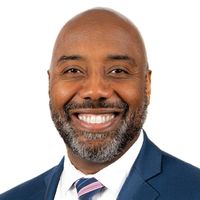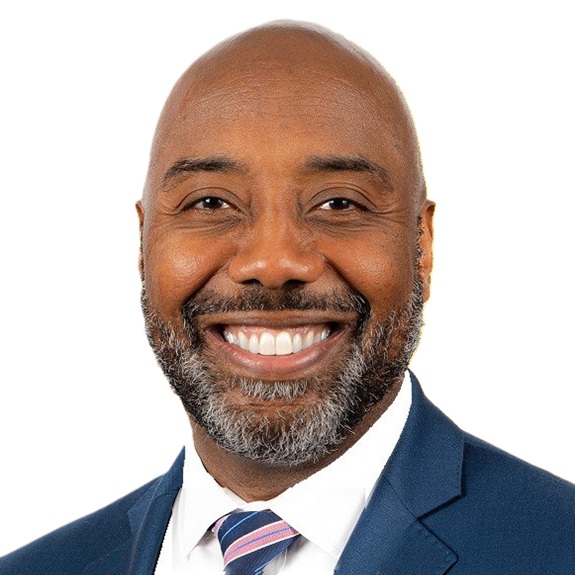I'm a Financial Pro: This Is How You Can Guide Your Heirs Through the Great Wealth Transfer
Focus on creating a clear estate plan, communicating your wishes early to avoid family conflict, leaving an ethical will with your values and wisdom and preparing them practically and emotionally.


Profit and prosper with the best of Kiplinger's advice on investing, taxes, retirement, personal finance and much more. Delivered daily. Enter your email in the box and click Sign Me Up.
You are now subscribed
Your newsletter sign-up was successful
Want to add more newsletters?

Delivered daily
Kiplinger Today
Profit and prosper with the best of Kiplinger's advice on investing, taxes, retirement, personal finance and much more delivered daily. Smart money moves start here.

Sent five days a week
Kiplinger A Step Ahead
Get practical help to make better financial decisions in your everyday life, from spending to savings on top deals.

Delivered daily
Kiplinger Closing Bell
Get today's biggest financial and investing headlines delivered to your inbox every day the U.S. stock market is open.

Sent twice a week
Kiplinger Adviser Intel
Financial pros across the country share best practices and fresh tactics to preserve and grow your wealth.

Delivered weekly
Kiplinger Tax Tips
Trim your federal and state tax bills with practical tax-planning and tax-cutting strategies.

Sent twice a week
Kiplinger Retirement Tips
Your twice-a-week guide to planning and enjoying a financially secure and richly rewarding retirement

Sent bimonthly.
Kiplinger Adviser Angle
Insights for advisers, wealth managers and other financial professionals.

Sent twice a week
Kiplinger Investing Weekly
Your twice-a-week roundup of promising stocks, funds, companies and industries you should consider, ones you should avoid, and why.

Sent weekly for six weeks
Kiplinger Invest for Retirement
Your step-by-step six-part series on how to invest for retirement, from devising a successful strategy to exactly which investments to choose.
By 2048, a record-breaking $124 trillion could pass from an older to a younger generations in what has been dubbed the Great Wealth Transfer — with significant implications for the U.S. economy.
But the mechanics of this transfer within individual families are equally important, especially if heirs aren't logistically or mentally prepared to inherit a large sum.
Despite its significance, only 31% of Americans have a will, even though 83% recognize the importance of estate planning, according to Trust & Will's 2025 Estate Planning Report. This disconnect leaves many families vulnerable to confusion, conflict and financial missteps.
From just $107.88 $24.99 for Kiplinger Personal Finance
Become a smarter, better informed investor. Subscribe from just $107.88 $24.99, plus get up to 4 Special Issues

Sign up for Kiplinger’s Free Newsletters
Profit and prosper with the best of expert advice on investing, taxes, retirement, personal finance and more - straight to your e-mail.
Profit and prosper with the best of expert advice - straight to your e-mail.
Kiplinger's Adviser Intel, formerly known as Building Wealth, is a curated network of trusted financial professionals who share expert insights on wealth building and preservation. Contributors, including fiduciary financial planners, wealth managers, CEOs and attorneys, provide actionable advice about retirement planning, estate planning, tax strategies and more. Experts are invited to contribute and do not pay to be included, so you can trust their advice is honest and valuable.
Preparedness is key. Here's what older generations should do now to best position their heirs for success.
Make a plan
Making a clear estate plan with the help of a professional is the first step. For instance, at this stage it could be smart to consider a living trust to manage and protect your assets while you're alive and distribute them to your chosen beneficiaries after you're gone.
Also ensure that your estate plan designates power of attorney and includes an advance health care directive so that your family knows what medical interventions (if any) you want.
If you have preferences about your funeral arrangements or burial, make sure to include those, too. It can lessen the burden on your family during a stressful time if there's already a clear plan in place.
Finally, don't forget the basic logistics. Make sure your estate plan includes:
- Log-ins for bank, retirement and investment accounts
- Keys to safe-deposit boxes and/or safes (along with a list of contents)
- A list of real estate properties and information about where to find the deeds
- Copies of insurance policies, including the name and phone number of the person to call when cashing them in
- Tax returns
- Recurring bills or services to be canceled
- Outstanding debts or loans
Communicate your wishes early
One of the biggest hurdles to a seamless transition? Family bickering about assets and sentimental objects. No one wants their heirs to end up like the Jarndyce family in Charles Dickens' Bleak House, throwing away a fortune on years of drawn-out probate cases.
The best way to nip this in the bud is to discuss your estate plan in detail with your entire family so that everyone understands who's getting what (and why, if needed). With the family's blessing, the process of divvying up your estate should become an easier process when the time comes.
Many families avoid these conversations because they're an emotional minefield, but they're essential. Talking about your plan now can help identify gaps or issues that need to be addressed or conflicts that will require further discussion.
On the other hand, waiting until the situation is dire could cause expensive and time-consuming complications— not to mention emotional distress — for your family.
Leave an ethical will
A younger generation should inherit more than just wealth. They also need the wisdom of earlier generations who earned and stewarded those assets so that heirs can eventually pass wealth onto their children.
An ethical will can help you do that. Contrary to a legal document, an ethical will is a statement of values, a compendium of stories and lessons learned that can help steer your family in the right direction long after you're gone.
The content can vary from "here's what's really important in life" to "smart strategies for spending" — whatever will serve your family best. There are plenty of prompts available online to help you get started.
The medium can be flexible, too. Some people prefer to write letters, while others might want to leave a video or audio file. I've seen a grandfather record conversations with his granddaughter, eventually collecting and compiling them to serve as his ethical will.
Looking for expert tips to grow and preserve your wealth? Sign up for Adviser Intel (formerly known as Building Wealth), our free, twice-weekly newsletter.
Remember, this is a chance to speak not just to your children or grandchildren, but future generations you'll never meet. Think about what advice you wish you'd received, the traditions that are important to you or lessons you learned the hard way, then share this wisdom with your descendants.
Prepare your heirs
When the Great Wealth Transfer hits an individual family, it's a deeply emotional and messy process. The more that older generations prepare their successors — practically and emotionally — the better equipped they'll be to address the logistical and ethical responsibilities that come with their newfound wealth.
With clear instructions and all assets accounted for, the transfer itself can be smooth, allowing loved ones to focus on grieving and honoring your memory. The key is to start preparing today.
This article, which has been written by an outside source and is provided as a courtesy by Stephen B. Dunbar III, JD, CLU (AR Insurance Lic. #15714673), Executive Vice President of the Georgia Alabama Gulf Coast Branch of Equitable Advisors LLC, does not offer or constitute, and should not be relied upon, as financial, tax, accounting, or legal advice. Equitable Advisors LLC and its affiliates do not make any representations as to the accuracy, completeness or appropriateness of any part of any content hyperlinked to from this article. Your unique needs, goals and circumstances require the individualized attention of your own tax, legal, and financial professionals whose advice and services will prevail over any information provided in this article. Stephen B. Dunbar III offers securities through Equitable Advisors LLC (NY, NY 212-314-4600), member FINRA, SIPC (Equitable Financial Advisors in MI & TN), offers investment advisory products and services through Equitable Advisors LLC, an SEC-registered investment adviser, and offers annuity and insurance products through Equitable Network LLC (Equitable Network Insurance Agency of California LLC). Financial professionals may transact business and/or respond to inquiries only in state(s) in which they are properly qualified. AGE-8395942.1(09/25)(exp.09/29)
Related Content
- The Six Estate Planning Steps Every Blended Family Must Take
- An Attorney's Guide to Your Evolving Estate Plan: Set-It-and-Forget-It Won't Work
- Protect Your Family's Future: Avoid These 12 Common Estate Planning Mistakes
- A Financial Expert's Three Steps to Becoming Debt-Free (Even in This Economy)
- This Is What You Really Need to Know About Medicare, From a Financial Expert
Profit and prosper with the best of Kiplinger's advice on investing, taxes, retirement, personal finance and much more. Delivered daily. Enter your email in the box and click Sign Me Up.

Stephen Dunbar, Executive Vice President of Equitable Advisors’ Georgia, Alabama, Gulf Coast Branch, has built a thriving financial services practice where he empowers others to make informed financial decisions and take charge of their future. Dunbar oversees a territory that includes Georgia, Alabama and Florida. He is also committed to the growth and success of more than 70 financial advisers. He is passionate about helping people align their finances with their values, improve financial decision-making and decrease financial stress to build the legacy they want for future generations.
-
 Stocks Shrug Off Tariff Ruling, Weak GDP: Stock Market Today
Stocks Shrug Off Tariff Ruling, Weak GDP: Stock Market TodayMarket participants had plenty of news to sift through on Friday, including updates on inflation and economic growth and a key court ruling.
-
 You Received a Life Insurance Payout. Here's How to Avoid an IRS Audit.
You Received a Life Insurance Payout. Here's How to Avoid an IRS Audit.You received a big check from your loved one's life insurance policy. Will the IRS be expecting a check from you now?
-
 Supreme Court Strikes Down Trump Tariffs: What's Next for Consumers and Retailers?
Supreme Court Strikes Down Trump Tariffs: What's Next for Consumers and Retailers?Tax Law This landmark decision will reshape U.S. trade policy and could define the outer boundaries of presidential economic power for years to come.
-
 Stocks Shrug Off Tariff Ruling, Weak GDP: Stock Market Today
Stocks Shrug Off Tariff Ruling, Weak GDP: Stock Market TodayMarket participants had plenty of news to sift through on Friday, including updates on inflation and economic growth and a key court ruling.
-
 10 Things to Know About Decluttering
10 Things to Know About DeclutteringYou’ve spent a lifetime amassing your stuff. Here’s how to get rid of it.
-
 QUIZ: Are You Ready To Retire at 62?
QUIZ: Are You Ready To Retire at 62?Quiz Are you in a good position to retire at 62? Find out with this quick quiz.
-
 Divorce Can Feel Amazing. I See the Freedom in My Best Friend’s Late-Life Divorce — Even if He’s Still Finding It.
Divorce Can Feel Amazing. I See the Freedom in My Best Friend’s Late-Life Divorce — Even if He’s Still Finding It.Having gone through a divorce myself, I know it can bring financial and emotional peace in the long run.
-
 I'm a Financial Planner: This Is How You Can Legally Divorce the IRS for the Rest of Your Life
I'm a Financial Planner: This Is How You Can Legally Divorce the IRS for the Rest of Your LifeWith some careful planning focused on the standard deduction, retirees who have large sums in tax-deferred accounts can avoid unpleasant tax bills and even part ways with the IRS for good.
-
 9 Ways the Wealthy Waste Thousands in Taxes: A Checklist for What Not to Miss
9 Ways the Wealthy Waste Thousands in Taxes: A Checklist for What Not to MissThe tax code contains plenty of legitimate ways for the wealthy and business owners to cut taxes. Use this checklist to minimize taxes and stay compliant.
-
 Stocks Drop as Iran Worries Ramp Up: Stock Market Today
Stocks Drop as Iran Worries Ramp Up: Stock Market TodayPresident Trump said he will decide within the next 10 days whether or not the U.S. will launch military strikes against Iran.
-
 5 Investing Rules You Can Steal From Millennials
5 Investing Rules You Can Steal From MillennialsMillennials are reshaping the investing landscape. See how the tech-savvy generation is approaching capital markets – and the strategies you can take from them.